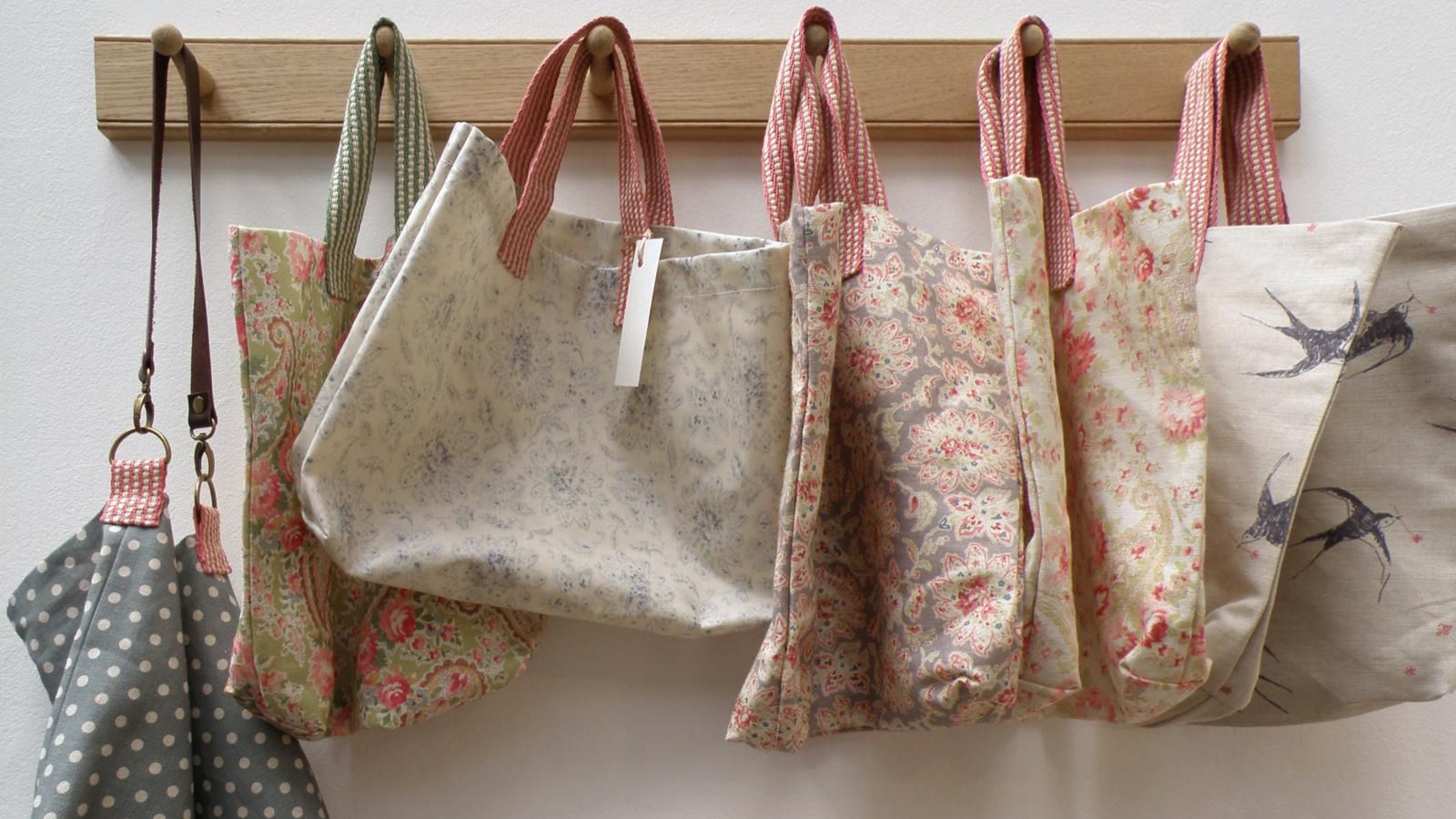
Design expertise in your inbox – from inspiring decorating ideas and beautiful celebrity homes to practical gardening advice and shopping round-ups.
You are now subscribed
Your newsletter sign-up was successful
Want to add more newsletters?

Twice a week
Homes&Gardens
The ultimate interior design resource from the world's leading experts - discover inspiring decorating ideas, color scheming know-how, garden inspiration and shopping expertise.

Once a week
In The Loop from Next In Design
Members of the Next in Design Circle will receive In the Loop, our weekly email filled with trade news, names to know and spotlight moments. Together we’re building a brighter design future.

Twice a week
Cucina
Whether you’re passionate about hosting exquisite dinners, experimenting with culinary trends, or perfecting your kitchen's design with timeless elegance and innovative functionality, this newsletter is here to inspire
As a busy working mum, clutter builds up fast in my house. Not just because my two weird yet wonderful boys are incapable of letting anything go (who knew one could be so attached to an empty cardboard box?) but because – and I’m sure any parent to young kids will agree with me here – there simply aren’t enough hours in the day to keep on top of it all.
Last year, after a particularly ‘clutter-heavy’ Christmas, I decided action was needed, and in my hunt for effective decluttering tips and home organization ideas, I came across the ‘one bag a day’ declutter method. Simple, effective and with little to no prep or effort required, it sounded right up my street. I decided to give it a go.
A full year on from trying – and keeping up with – the ‘one bag a day’ declutter method, and I’m in a much happier place, figuratively and literally! My home is neat, orderly and well organized, and the transformative effect that decluttering has on my mood has been truly amazing; it really can change your life for the better.

After nearly 10 years working in the magazine industry, seasoned writer Tara decided to specialize in the topics she’s most passionate about: organizing, cleaning, interior design, wellbeing, craft and homemaking. Tara has written many decluttering and organization features for Homes & Gardens, speaking to and interviewing some of the world's top organization professionals along the way.
What is the ‘one bag a day’ declutter method?
So, I’ve been singing its praises, but what does the one bag a day declutter method actually involve? The clue is in the name: fill one bag a day with clutter. Yes, it really is that simple.
By breaking decluttering down into smaller chunks, so one bag a day, the task becomes far less monumental and you’re much more likely to crack on with it. It might not feel like you’re doing much, but if you keep it up, that’s 30 bags of clutter out of your home in just a month. It really does make a huge difference.
The beauty of this method is you can make your own rules. Perhaps you want to set yourself a timeline, 30 bags in 30 days for example, rather than a whole year. Or maybe one bag per clutter hotspot in your home, until everywhere is neat and orderly. You could also allow yourself to work ahead, so if you fill two or three bags in one day, give yourself a decluttering break for a few days. Or perhaps you have a week off work and want to do a bag a day for seven days? However you go about it, the key is to keep on top of your goals and stick with them.
What do you do with your bags of clutter?
Well, that’s really up to you. However, whether you’re donating, recycling, throwing or selling – don’t delay. Leaving bags of stuff you no longer want lying around the house is one of the top decluttering mistakes to avoid. Not only does it lessen the feeling of satisfaction, it also increases the likelihood that you’ll start rethinking your decisions. I found it helps to move the bags somewhere visible, such as by the front door or in the front seat of the car.
Design expertise in your inbox – from inspiring decorating ideas and beautiful celebrity homes to practical gardening advice and shopping round-ups.
I tried the one bag a day declutter method – and this is what I discovered
These are my learnings. If you're wondering how to declutter when you feel overwhelmed, I really recommend it.
1. It’s perfect for people who find decluttering difficult
If you’re one of the many people who finds themselves unable to start decluttering, this is the method for you. If a few things don’t make their way into the bag in the first few weeks, or even months, for whatever reason, that’s okay. You’ve got plenty of opportunities to pop them in further down the line. Which will almost certainly happen because…
2. The more often you declutter, the easier it becomes
Even filling one bag of clutter can feel like a big deal when you start. It’s not always easy to avoid declutter regret; ’what if I need this again one day?’... you soon find yourself second-guessing your decisions.
Rest assured, this will get easier as time goes on. The more you declutter, the less you want to keep clutter in your home, and it becomes easier to let things go. Give it a few months and those just in case items will be going straight into the bag, no questions asked.
3. It’s not a quick fix
Depending on what the particular clutter hotspots are, some areas of the home might take a little longer than others to tackle. Organizing my bedroom took a lot longer than expected, for example, while decluttering toys was surprisingly quick (you’ll be surprised how willing children are to pass once-loved toys on when they understand the joy they can bring to others – it’s been a truly valuable life lesson for both my boys and for me).
The key is not to get phased. Slow and steady wins the race with this method, you’ll get there in the end.
5. There are other ways to cherish memories than hoarding ‘stuff’
After a few months of decluttering using the one bag a day method, I began to get a sense of the sentimental items I truly needed to hold onto, and those that I didn’t. My boys’ copious amounts of artwork, for example – photographs of them are just as lovely, and a far more practical, and space-saving, option when displayed in a scrapbook. I also heeded this advice from professional organizer Julie Onstot of SortWell Organizing Co.
‘Remember that your memories, and the people you made them with, are worth so much more than the item itself. If you feel like you’re missing the "thing", reach out to a loved one instead, and talk about the memory you share’.
Of course, I still come across ‘unnecessary’ items that I can’t bear to part with, but rather than leave them where they are, I move them into my ottoman – a ‘designated nostalgia zone’, if you will. Limiting myself to a confined space forces me to really think about whether items deserve a place in there.
6. Decluttering does wonders for your mood
Until you start living without it, you have no idea how much of an impact cluttered surroundings can have on your mood. When your surroundings are lighter and brighter, your mind and spirits will be too. Tidy house, tidy mind, as they say.
7. You can adapt it to suit your lifestyle
So you had ‘decluttering clothes fast’ on your list for today, but you’ve fallen behind on laundry and half your closet’s in the washing machine. Not a problem. Simply swap in something else for that day instead – handbags, makeup, jewelry perhaps. The beauty of the ‘one bag a day’ method is its simplicity. As long as you fill a bag a day – whatever that may contain – you’re on the right track.
8. You become more mindful of what you bring into your home
A year on, and I can safely say that I don’t feel the need to declutter a bag a day anymore, and when I do, my bag is a lot smaller than when I first started this method. This is partly due to my dedication, but also because I’ve become much more mindful of what I bring into my home. I now know what it’s like to live clutter-free, and I like it.
What should I remove first when decluttering?
My advice would be to start small – an overflowing drawer or a cabinet, for example – in an area of your home that’s bothering you the most. The sense of relief at finally tackling it will make decision-making that much easier, plus you’ll see the difference straight away which will encourage you to keep going on day two… and day three… you’ll be 365 days down in no time!
What is the fastest way to purge clutter?
If it’s speed you’re after, the one bag a day declutter method isn’t your best bet. The concept behind it is ‘slow and steady’, so you might want to think about taking a more ruthless approach if time is of the essence. According to the experts, it’s usually the decision-making that slows people down, but there are tricks you can try to achieve a speedier sort out.
Start by employing a set of rules, and stick to them. What they are is up to you, but sensible questions to ask yourself might include ‘do I really need this?’ and ‘when was the last time I used this’. It can be helpful to set a time limit, 30 second perhaps, for a decision. You could also try using the 20/20 decluttering rule.
‘If you're on the fence about something, think about what it would take to replace that item if you needed to. If it would take you less than 20 minutes, and cost you less than £20, go ahead and get rid of it. The effort of replacing it is not worth the space it’s taking up in your home, and chances are, you won’t miss it anyway’, says professional organizer Laura Price of The Home Organisation.
Asking friends for help, or even a professional organizer, can also make a big difference. They don’t have the same emotional attachments to your items, so are able to help you make quick and rational decisions.

For 10 years, Tara King worked as a Content Editor in the magazine industry, before leaving to become freelance, covering interior design, wellbeing, craft and homemaking. As well as writing for Ideal Home, Style at Home, Country Homes & Interiors, Tara’s keen eye for styling combined with a passion for creating a happy – and functional – family home has led to a series of organization and cleaning features for H&G.
